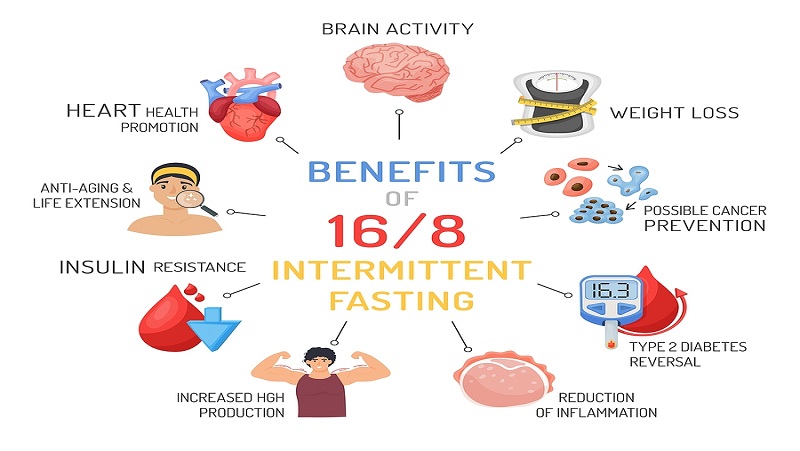Intermittent Fasting is not just a fad diet, but an eating pattern that has been practiced for centuries. This schedule involves reducing your meals or abstaining from food consumption entirely for a specific period, followed by regular eating. Some people use intermittent fasting to lose weight, while others do it primarily for other health benefits. In this article, we will dive deep into the benefits and drawbacks of intermittent fasting and provide insight about what you need to know before starting this routine.
Benefits:
1. Weight Loss: Intermittent fasting can lead to weight loss as our body uses stored fat for energy during the fasting period.
2. Lower Risk of Developing Chronic Diseases: Intermittent fasting can help the body reduce blood sugar levels, inflammation, and insulin resistance, which are risk factors for several chronic diseases, including heart diseases and diabetes.
3. Improved Brain Function: Research has shown that intermittent fasting can help the brain create new nerve cells and improve cognitive function.
4. Anti-Aging Benefits: Intermittent fasting is believed to promote autophagy, a natural cell cleansing process that repairs damaged cells, leading to anti-aging benefits.
Drawbacks:
1. Cravings: During the fasting period, some people may experience hunger pains or cravings, which may make fasting challenging.
2. Difficulty Maintaining the Routine: Intermittent fasting can be difficult to maintain, especially if you are used to eating frequent meals throughout the day.
3. Potential Nutrient Deficiencies: Intermittent fasting may result in nutrient deficiencies if you are not careful about what you eat during the eating window.
4. May Not Be Suitable for Everyone: Intermittent fasting may not be suitable for pregnant women, individuals with type 1 diabetes, or people with a history of eating disorders.
Tips for Intermittent Fasting:
1. Start Slow: If you are new to intermittent fasting, it is best to start with shorter fasting periods and gradually increase them.
2. Stay Hydrated: Drinking plenty of water during the fasting period can help reduce hunger and keep you hydrated.
3. Stay Busy: Finding ways to keep yourself occupied during the fasting period, such as going for a walk, can help you avoid snacking or thinking about food.
4. Focus on Eating Nutrient-Dense Foods: During the eating window, prioritize consuming whole, nutrient-dense foods, to avoid nutrient deficiencies.
Intermittent fasting can have several benefits, including weight loss, improved brain function, and anti-aging benefits. However, it is essential to be aware of the drawbacks, including hunger and nutrient deficiencies, before starting this routine. If you do decide to try intermittent fasting, take it slow, stay hydrated, stay busy, and prioritize consuming nutrient-dense foods during the eating window. As always, we recommend consulting with a healthcare provider before making any significant dietary changes. Dr. Lala at Kinetix can provide you the expertise to integrate intermittent fasting safely and effectively.




